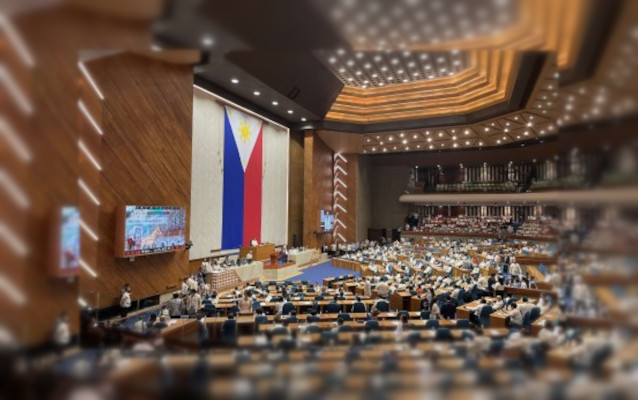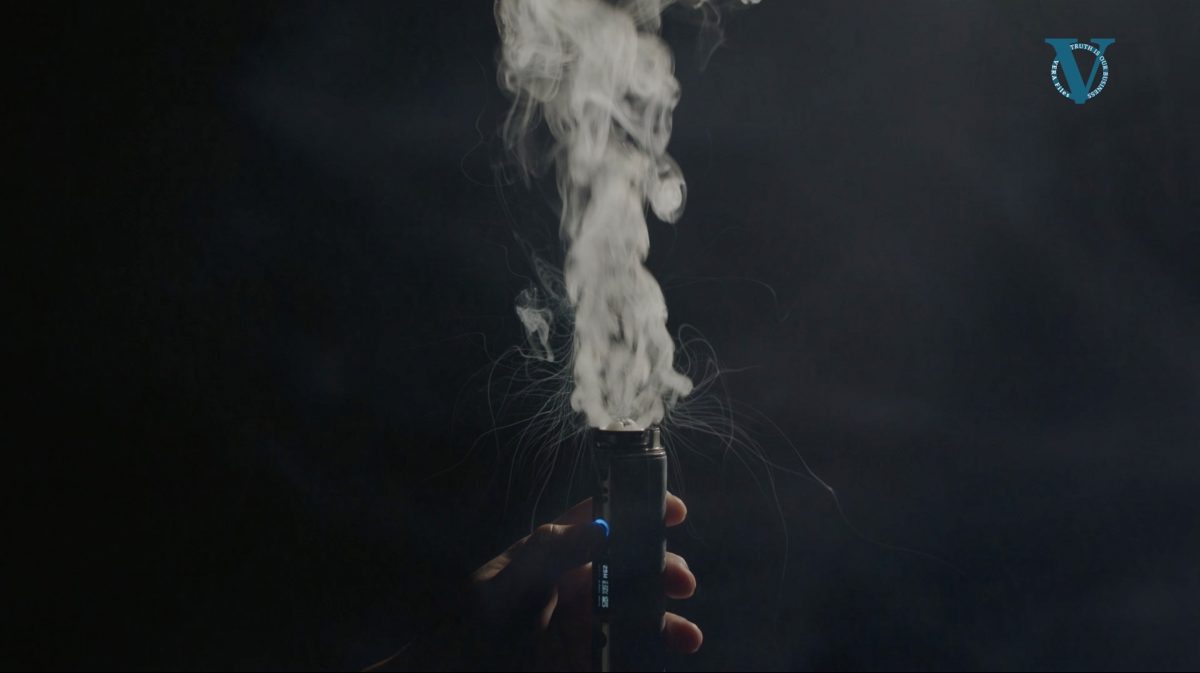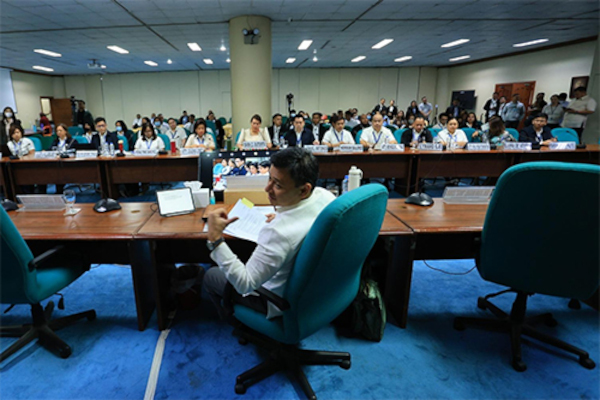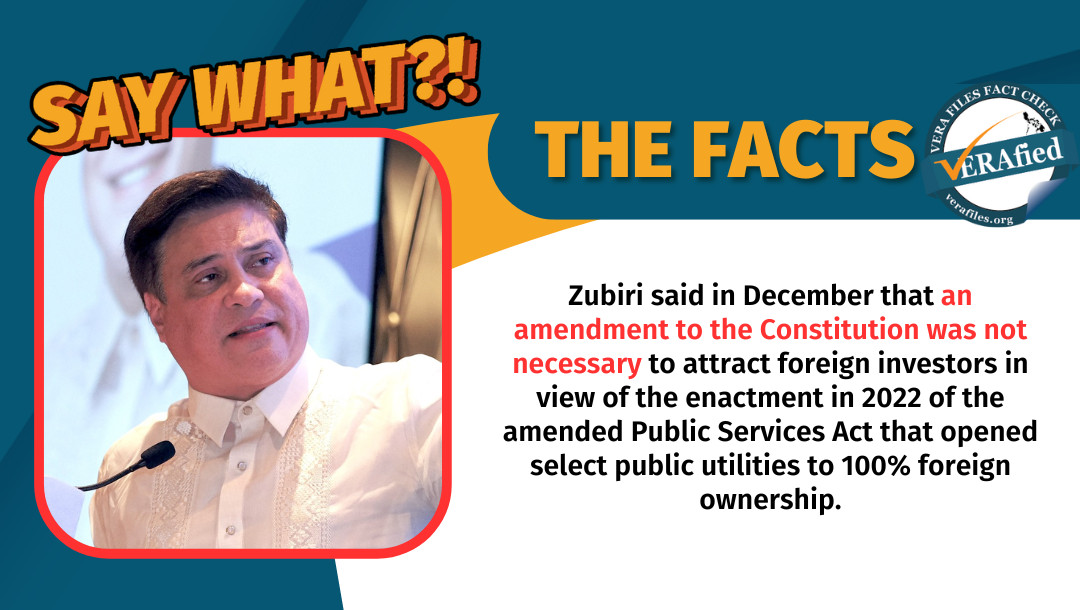Allies of House Speaker Ferdinand Martin Romualdez are apparently rushing to amend the 1987 Constitution through a deceptive “people’s initiative” to bypass the Senate, where previous Charter change (Cha-cha) attempts had been crushed.
The initiators have never learned from the mistakes and deceitful practices that marked the unsuccessful efforts to either amend or revise the 37-year-old Constitution in the past.
They’re at it again: pushing the people’s initiative route by offering a cash incentive to lure people to sign a Cha-cha petition that would let voters decide if senators and congressmen have to vote jointly or separately to consider proposals to amend the Constitution.
Earlier, they were also eyeing the constituent assembly (Con-Ass) route, which would have the Senate and the House convening to vote on specific amendments. This did not fly because they could not agree on the manner of voting.
Now, they are going about more openly in their sinister plan to get past the Senate by insisting that Congress vote jointly and not separately to approve an amendment by first taking the people’s initiative route.
If a bill changing the name of a street or a school requires a majority vote of the senators, why should an amendment to the Constitution effectively exclude the Senate? By voting jointly, the House, with 315 members, can easily garner a three-fourths vote even without or just a single vote from a senator to approve an amendment. Voting separately means the Senate and the House should each have a 3/4 vote to approve an amendment.
In March 2023, the House voted 301-7 to approve House Bill 7352, which provides for Cha-cha via the third mode, through a constitutional convention (Con-Con). It calls for a hybrid Con-con, with one delegate elected per legislative district and 20 percent of the total coming from sectoral representatives jointly appointed by the Senate President and House Speaker. This, too, did not fly. They had intended to piggyback the election of the Con-con delegates on the barangay and Sangguniang Kabataan elections last Oct. 30.
Before Congress went on Christmas break last month, Romualdez said 2024 “will allow us again to revisit the whole issue of the Constitution” and that lawmakers would be “studying this” during the legislative recess to prepare for “our legacy in the 19th Congress.”
On Jan. 9, people glued to their television sets monitoring the Traslacion on the Feast of the Black Nazarene on primetime newscast were bombarded with the repeated airing of a paid advertisement about “EDSA-Pwera,” a play on the word “etsa-puwera” (tossed aside or excluded).
Many people took it as discrediting the 1987 Constitution and demonizing the 1986 “People Power” revolution.
News reports say the campaign ad for Cha-cha was mounted by the People’s Initiative for Reform Modernization and Action (PIRMA), the same group behind the unsuccessful people’s initiative during the Ramos administration. It showed the Gana, Atienza, Avisado law offices as having placed the paid ad.
“This move is just to invite public discussion. Gusto lang namin ma-involve ‘yung mga tao, ma-inform ‘yung mga tao. This is also an information campaign,” a television news report quoted lawyer Jomari Basil of PIRMA as saying.
The ad came out as reports were circulating about groups gathering signatures for a people’s initiative to introduce amendments to the Constitution.
Expectedly, many senators are fuming over the renewed attempt by congressmen to exclude them from the process of amending the Constitution, as well as the deceptions employed in doing so, such as the supposed offer of P20 million each for legislative districts that can produce the required number of signatures for the people’s initiative petition.
Albay Rep. Edcel Lagman also said that Ako Bicol party-list coordinators have released funds for the people’s initiative signature campaign, giving each signatory a ₱100 incentive, for a petition that provides the Senate and the House voting jointly in amending the Constitution.
Sen. Imee Marcos said the P20-million incentive per district is released through various government programs such as assistance to the public in crisis, medical assistance to indigent patients, and living assistance to disadvantaged/displaced workers, among others.
If that is true, the House is funding the people’s initiative, which is actually initiated and pushed by its many of its members, by circumventing the appropriations law because the money is used not for the purposes it was intended.
Besides, the congressmen are supposed to represent the people. And if we are to believe the surveys, a Pulse Asia poll early last year showed a significant 45% of 1,200 respondents against Charter change and that 79% had little to no knowledge of the Constitution.
When it came to specific constitutional amendments or revisions, most of the respondents rejected the lifting of foreign ownership restrictions in communications (53%), utilities (55%), equity in mass media and advertising (57%, and residential and industrial lands (72%). These are the same “restrictive” provisions that the Cha-cha sponsors are pushing.
The deceptions in shortcutting the process of amending the Constitution should unmask the politicians’ self-serving agenda of extending their term in office and changing the form of government to allow them to stay on. That isn’t public service at all.
How these politicians will observe Constitution Day on February 2 is worth watching.
The views in this column are those of the author and do not necessarily reflect the views of VERA Files.
This column also appeared in The Manila Times.




